Chasing
BIG DREAMS
What Emory’s first-year college students think the future holds for them and the world they’re inheriting

Among Emory’s class of first-year college students reside trailblazers with the biggest of dreams. They’re burgeoning scientists who want to learn more about the world we live in and make it a better place. They’re activists and creative thinkers who want to fix society’s most challenging problems and forge a new world of equity and justice. They’re leaders who want to climb to the pinnacles of governance — aspiring future U.S. senators and Supreme Court justices — so they can have the greatest influence on changes they think need to be made.
Think such dreams are unrealistic? Don’t bet against these emerging young minds.
They survived the COVID-19 pandemic, they’ve endured the rise of social media, they’ve borne witness to the political divisiveness that’s fostered social unrest and outright war. And they don’t just bear scars from their experiences — they wear them as badges of resilience. In them, hope thrives and optimism radiates. They harbor a rock-solid belief in their own generation’s mettle, poised to tackle the burdens handed down to them.
Meet 12 members of Emory University’s Class of 2027 — a selection of talented and bright first-year students who come from a diverse range of backgrounds and experiences. Discover their views on the world they’re inheriting and their takes on what they’re most excited about as they stride into a new era of independence, higher learning and purpose.
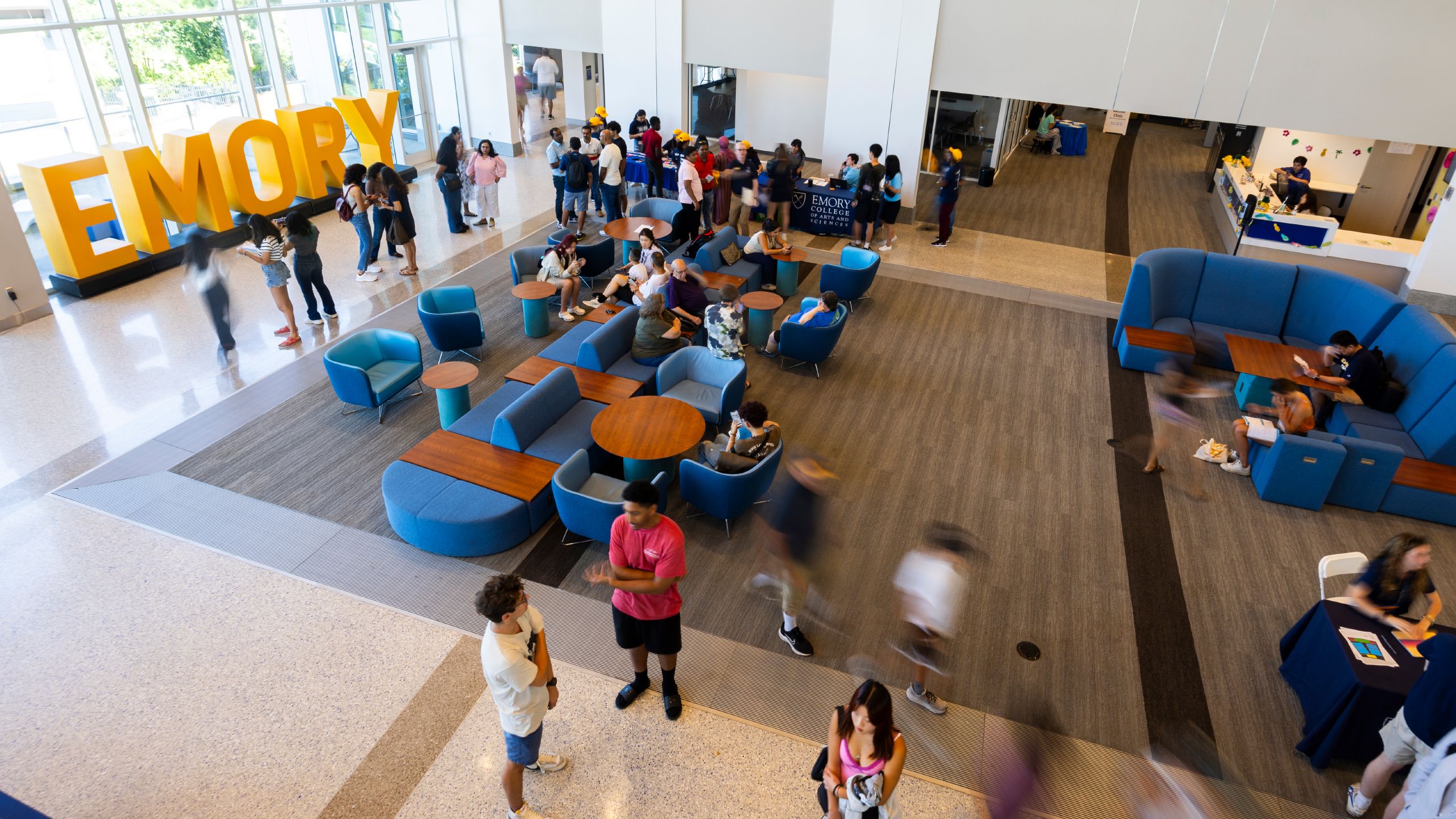
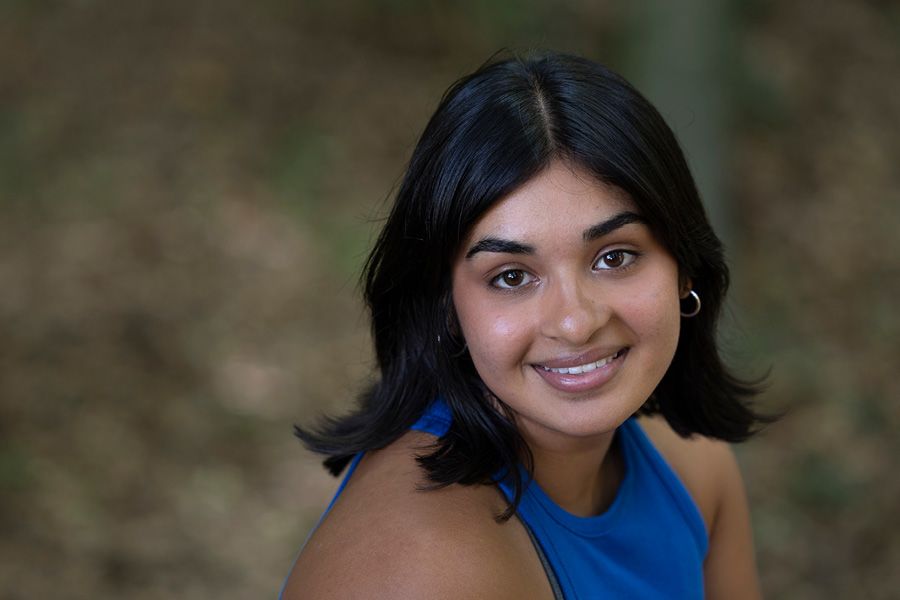
ANISSA PATEL
Emory College
Woodruff Scholar
Dover, Massachusetts
Prospective Majors: Environmental Science and Economics
Dream Job: “I want to work at the intersection of environmental science, politics and economics, conducting research and driving better public and scientific policy.”
Biggest Challenge the World Faces Today: “From my point of view, it’s definitely the climate crisis, especially the impact it’s already having on way we live. And I’m not talking just about the obvious ways — the loss of life to natural events like wildfires and flooding — but also the not-so-obvious impacts on human equity and our economy.”
What She’s Most Optimistic About: “I think my generation has a strong voice for change advocacy that’s getting louder, and we’re committed to making the world a better place.”
For Anissa Patel, coming to Emory marks an opportunity to explore a much bigger, more diverse world. She grew up in the small town of Dover (population 6,000 people), located 45 minutes outside of Boston, and is eager to spread her wings both academically and personally. “My high school was very small, with just 60 people in my graduating class,” Patel says. “For me, Emory seems to be the best of both worlds. The university is not overwhelmingly big like some schools, and the campus is beautiful and serene — the perfect place to focus on my studies. But at the same time, just minutes away is the heart of Atlanta — a vibrant, growing city with so much to do and explore.”
Patel hadn’t visited Emory until she came down for the Woodruff Scholars Finalists’ Week this past March. “I found everyone so welcoming, especially the students and faculty who came from all different kinds of backgrounds and had unique perspectives on life,” she says. “Emory immediately struck me as one of the most intellectual, captivating environments I had ever visited.”
She’s excited to start her studies, which will focus on the intersection of environmental science and economics. “I’m a very STEM-minded person but at the same time interested in political advocacy,” Patel says. “I’m hoping to combine science and advocacy and pursue a career in climate justice, where I can help inform and maybe even create public policy. Environmental science is so interesting because of how interdisciplinary it is, intersecting with a lot of different fields.”
Getting involved in student organizations and club sports — she played basketball and tennis in high school, as well as rowing on her crew team — might have to wait while she adapts to college life these next few months, but she’s keen to make new friends and jump into her classwork. “I can’t wait to be surrounded by all these new people and passions and ideas,” Patel says. “It’s so exciting.”
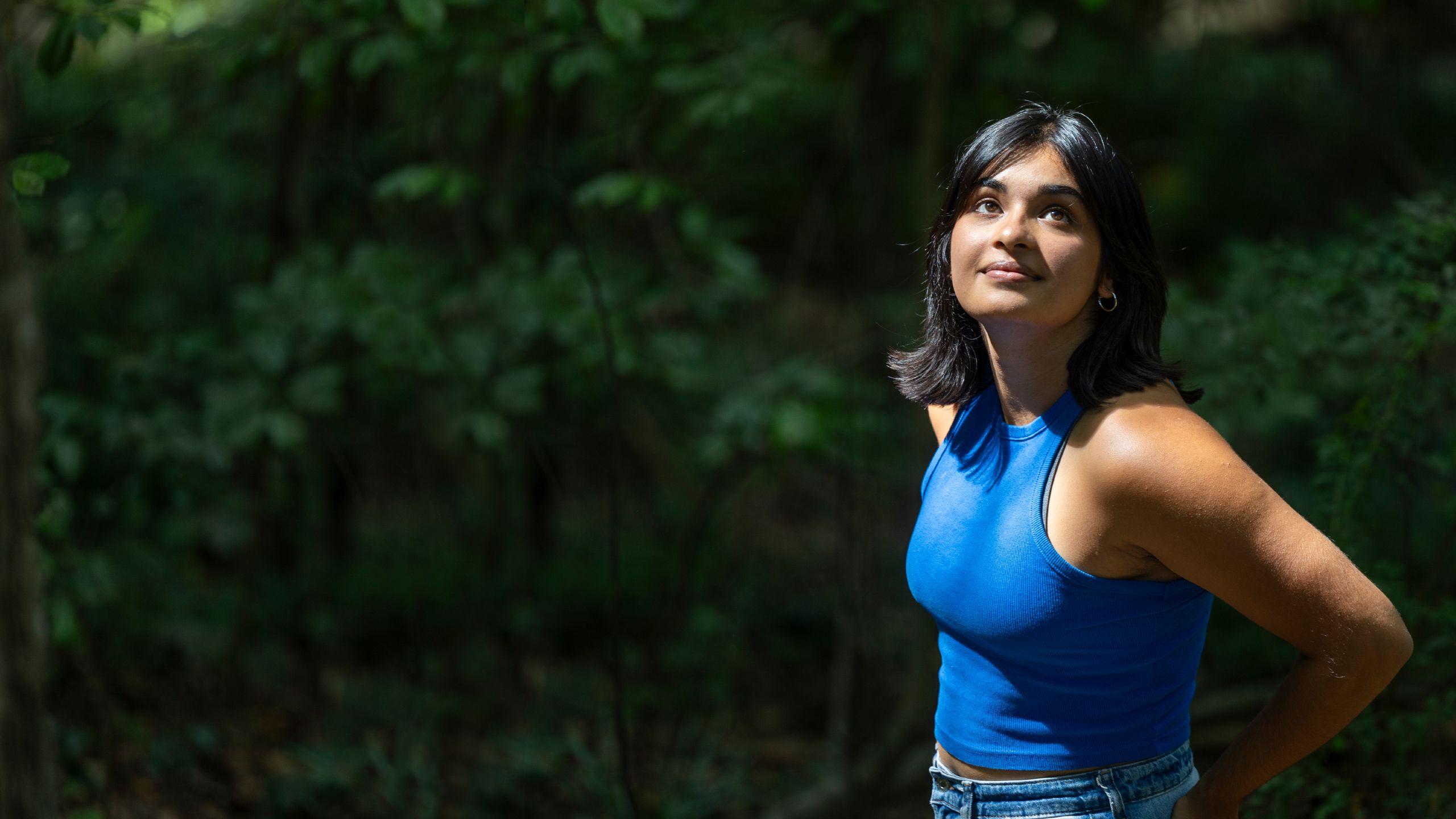
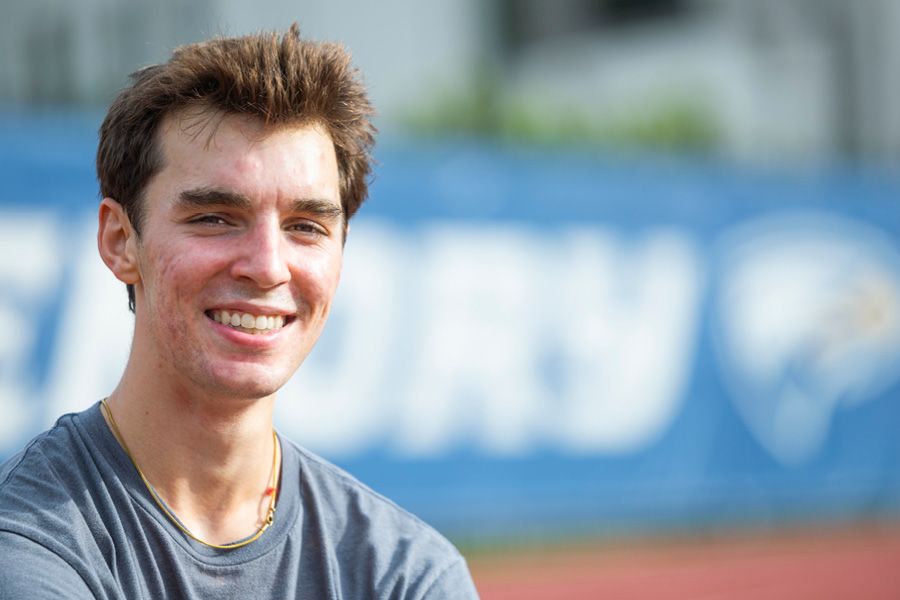
ANDREW BURCHETT
Emory College
Mobile, Alabama
Prospective Major: Political Science
Dream Job: “In a dream world, I’d love to be a U.S. congressman or senator, or maybe even a U.S. Supreme Court justice.”
Biggest Challenge the World Faces Today: “I’d say it’s the rise of misinformation, exacerbated by social media and politically skewed media organizations. Algorithms are keeping us in echo chambers. Apathy is also a problem.”
What He’s Most Optimistic About: “To move forward, we need more venues and opportunities for us to come together and find common ground rather than to keep on the path of extremism and divisiveness. I think my generation will play a vital role in bridging those gaps and finding ways to make decisions together that will help us all.”
Andrew Burchett chose Emory not just because it excelled in areas he knew he was looking for — a great political science department and competitive track team, for example — but also because the university encouraged exploration. Burchett thrives on going outside his comfort zone, like the time he swore to his high school drama teacher he couldn’t sing and then wound up starring in a musical.
“Emory just ticked off everything on my list,” he says. “Being part of Atlanta was also a huge plus, as there is a cornucopia of job opportunities and chances to serve and volunteer. It’s a really big city and offers a setting that not a whole lot of other schools in Emory’s class do.”
Burchett says he’s most excited “to start with a fresh four years and really branch out.” He’s especially eager to meet people from different backgrounds and learn about their walks of life and perspectives. “There are so many student organizations and clubs at Emory that I can’t wait to explore,” he says. “These first few months I hope to set up a solid foundation with my academics, make friends with my classmates and teammates, and learn from my professors and coaches. And I want to have fun.”
As of now, Burchett is thinking of majoring in political science, with a goal of going on to law school. “Someday I’d love to be in political office or on the bench as a judge,” he says. “But before I get carried away, I need to spend some time at Emory finding out what I’m good at and what I enjoy most. The most important thing is that I don’t just wind up with a job but a purpose-driven career where I can be something more than just myself, where I can serve others and make an impact on my communities.”
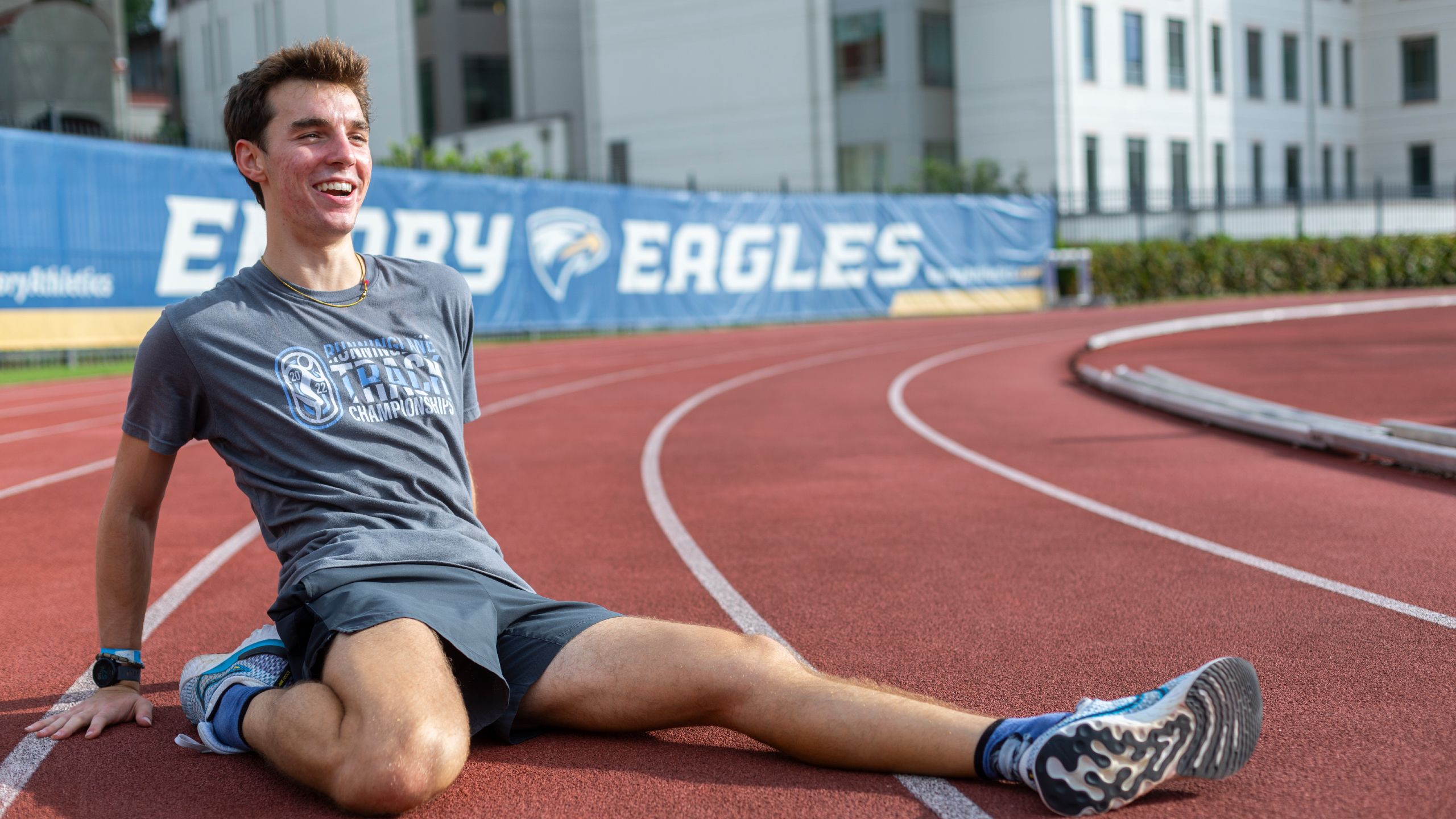
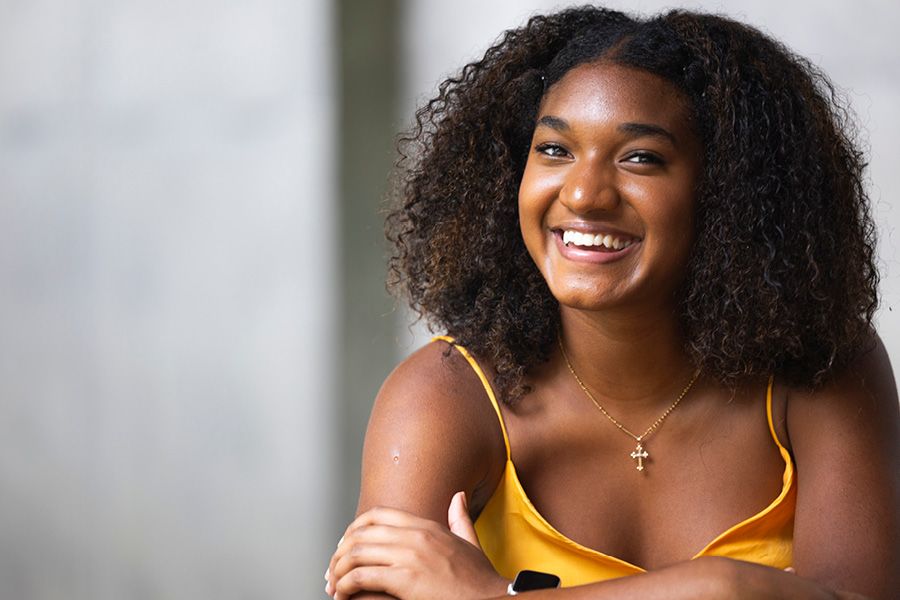
ENDIA JAMES
Emory College
Martin Luther King Jr. Woodruff Scholar
Atlanta, Georgia
Prospective Major: Human Health
Dream Job: “I’m not sure about the title or specific role, but I want to work for the World Health Organization in researching and promoting health care equity globally.”
Biggest Challenge the World Faces Today: “On a very personal, human level, I think for my generation, or for any generation trying to tackle the problems of the world, is that we sometimes don’t believe in ourselves enough — that we can’t accomplish our goals or aren’t worthy of chasing big dreams. Call it imposter syndrome or just self-doubt, but often when we look at what others have done or compare ourselves to the perfect versions of people projected through social media, it’s easy to lose your way and stray from what you want to do and who you want to be.”
What She’s Most Optimistic About: “I think the world will be a much better place when we’re all fully celebrated for our individual skills and interests rather than cast aside for being different. I think every person has their own passions and reasons for existing on this planet, and I’ve seen so much creativity and progress come out when they’re encouraged to express their individuality. I see exactly these things encouraged at Emory, and it makes me optimistic about what my classmates and I will go on to do in the world.”
Endia James led an exemplary career at Maynard Jackson High School, serving as student body president, National Honor Society secretary, school ambassador and Black student union parliamentarian. If that weren’t already enough, she was a Georgia state champion in the pole vault, fought for more diversity in her IB/AP programs, taught a Bible study class and even started a baking business when the pandemic struck.
She’s starting over at Emory and couldn’t be more excited. Her academic passion is studying health care disparities and equity.
“Growing up in Atlanta, I’ve seen how my own community lacked proper access to health care and information about diet and physical activity,” James says. “Being an athlete, these things are so important and natural to me, and I want to work to show others how small adjustments and changes can make a huge difference in their lives. I did it with my family and friends, but I want to make an even bigger impact.”
James is hopeful that Emory will help her realize this dream. “Emory’s offerings are unlike any other school I looked into, mainly because of how broad it is in coverage, from health policy and racial disparities to nutrition and business,” she says. “There are countless opportunities to learn and grow.”
Another thing she loves so far about Emory is the university’s focus on interdisciplinary studies, specifically “how you can take any two areas and combine them together to create a deeper educational experience,” James says. “I’m majoring in human health but I’m also interested in Spanish, with the thought being that I can work on health issues on a global scale.”
The university’s global diversity has already made an impact on James. “There are so many students and faculty from all over the world here at Emory,” she says. “Early on, I was talking to someone in a meeting and found out he was from Brazil. Immediately he’s telling me all about his family and culture and differences with the U.S., and it was so cool to learn from classmates that are unlike me, who have different beliefs and backgrounds. I grew up in a Jamaican and Indian household, so celebrating cultural differences has always been a big part of my life, and I can’t wait to learn more.”
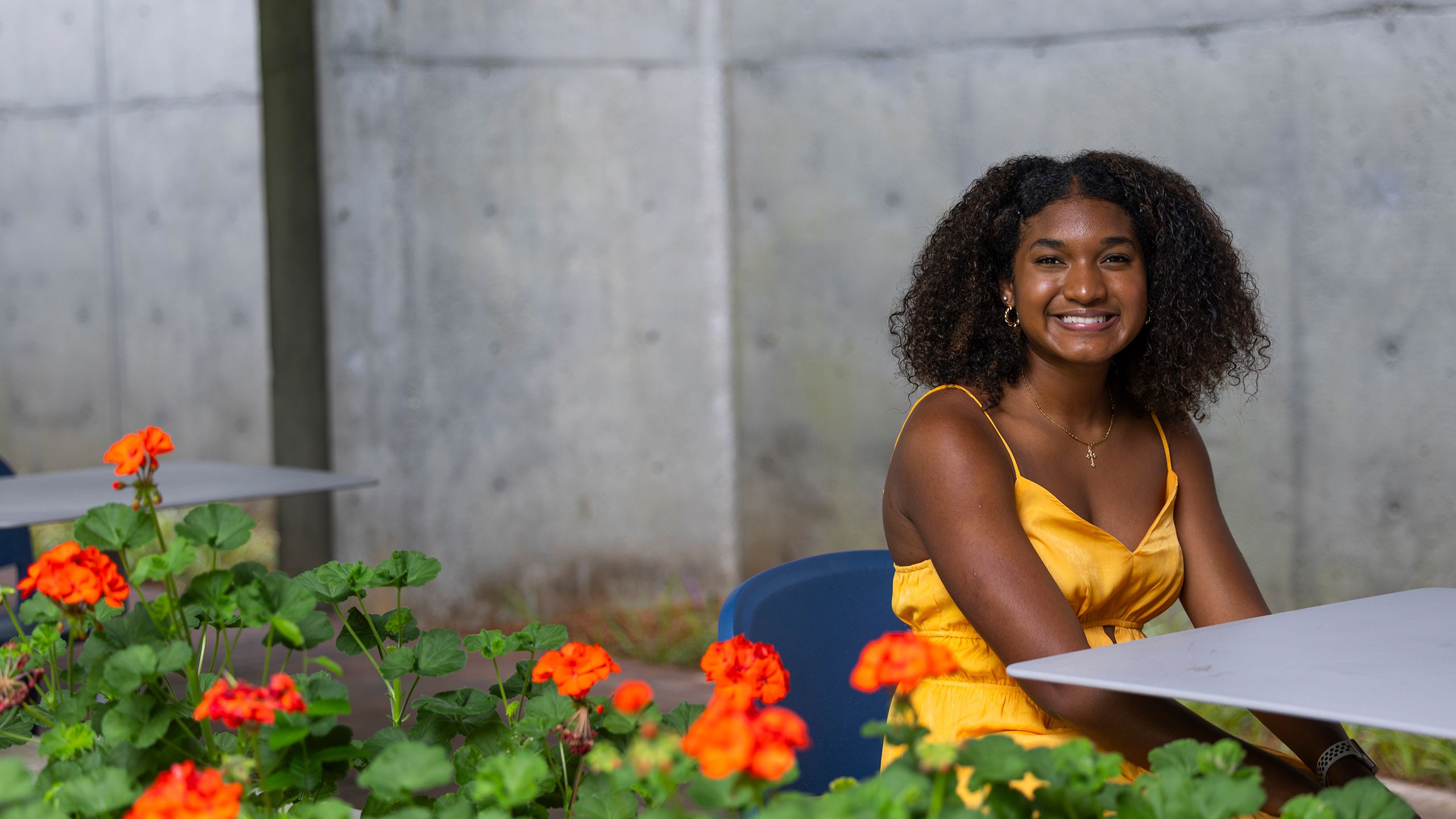
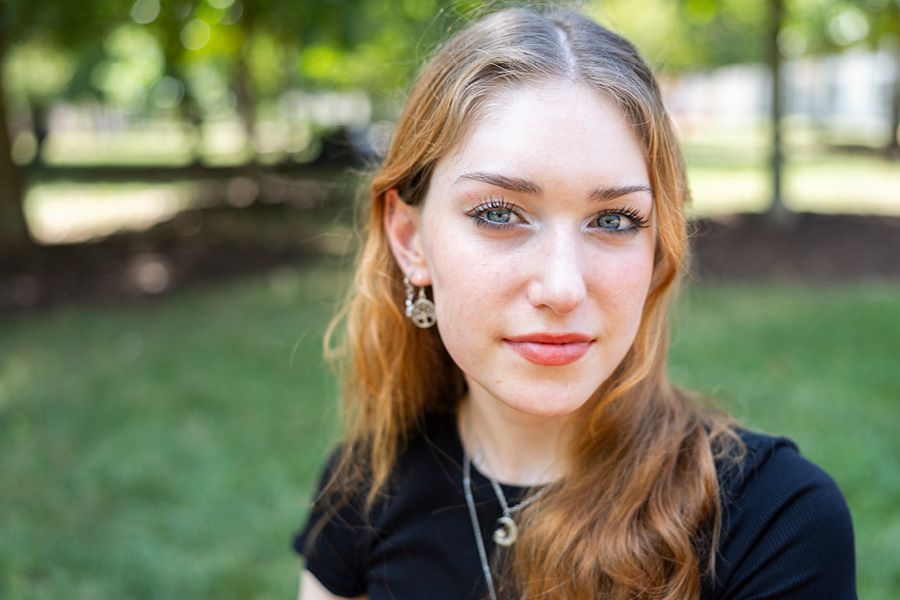
GWEN SINGER
Oxford College
Los Angeles, California
Prospective Majors: Neuroscience and Behavioral Biology and Political Science
Dream Job: “I want to earn my doctorate and be a researcher at the intersection of political science and neuroscience. It’s a burgeoning, fascinating niche called neuropolitics.”
Biggest Challenge the World Faces Today: “Everybody is talking but nobody seems to be listening. Instead, people seem to be happy repeating what others say without thinking critically about it and doing their own research.”
What She’s Most Optimistic About: “While older generations don’t seem to be too interested in solving the problems of the world, young people today want to make a difference. We’re passionate and driven — both by anger and hope — to do good for the world.”
When deciding among universities to attend, Gwen Singer knew she wanted her college experience to be vastly different from anything she had experienced before. “I was attracted to Oxford because it was almost exactly the opposite of my large public school in Los Angeles,” Singer says. “I had a lot of great friends, but I didn’t know my teachers super well. I’m looking forward to the more close-knit experience that Oxford offers, built around community and collaboration and lifting each other up.”
Prior to coming to school, Singer leveraged social media to connect with other students and found a great roommate. “I’m excited because we all were attracted to Emory and, in particular, because we share some of the same core values — we seek enlightenment and new ideas and research and community,” she says. “Compare that to high school where you’re surrounded by people based on geography, and it’s just such a fresh, inspiring start.”
Singer plans to double major in political science along with neuroscience and behavioral biology. “I thought it might not be possible to pull off — they’re such different fields on the surface — but my advisor at Oxford said I could definitely do it,” Singer says.
She specifically wants to study the intersection between the two areas and get into the burgeoning field of neuropolitics. “Neuropolitics analyzes the science of why we think the way we do and how it influences how we vote and make political decisions,” she says.
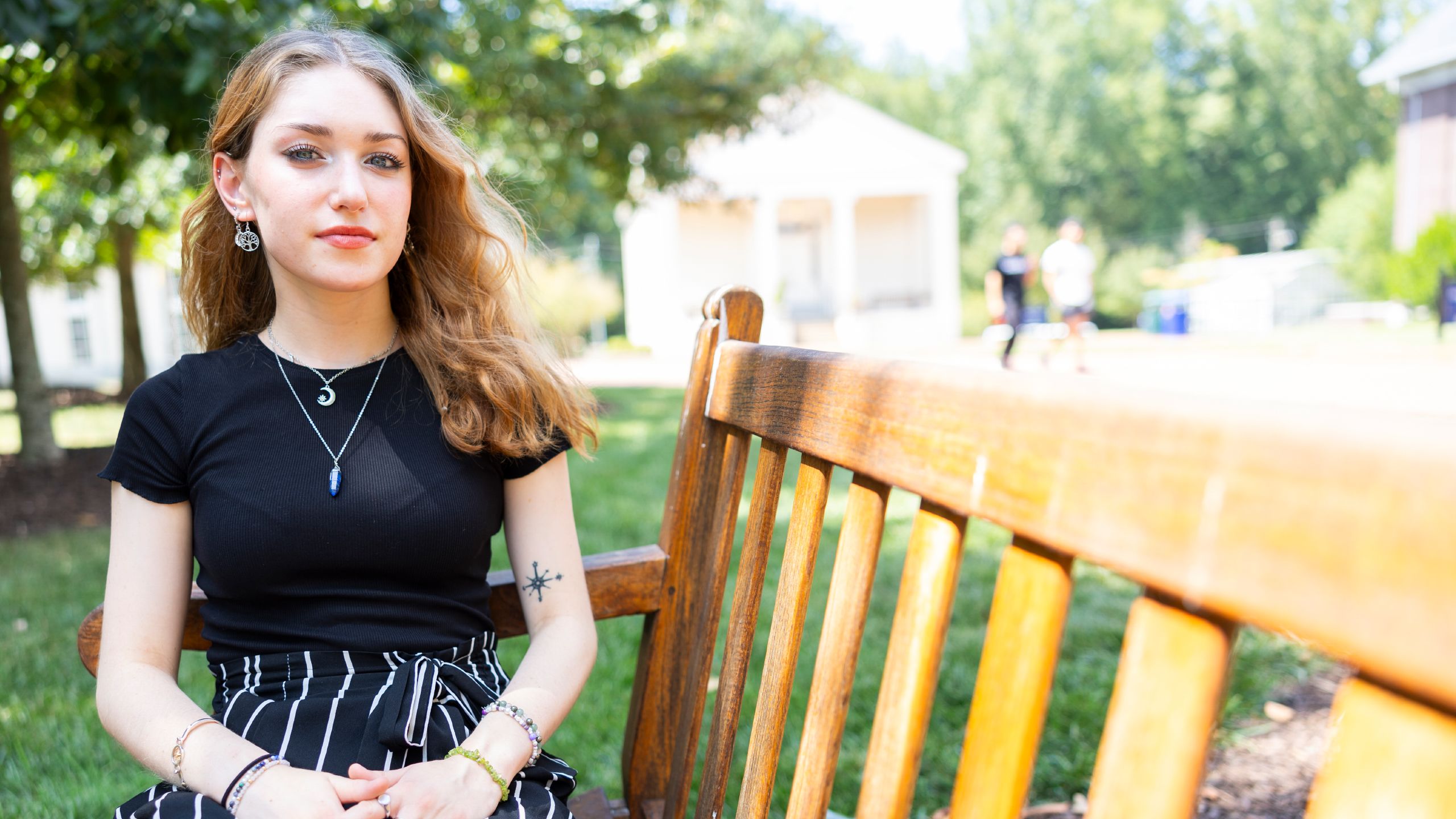
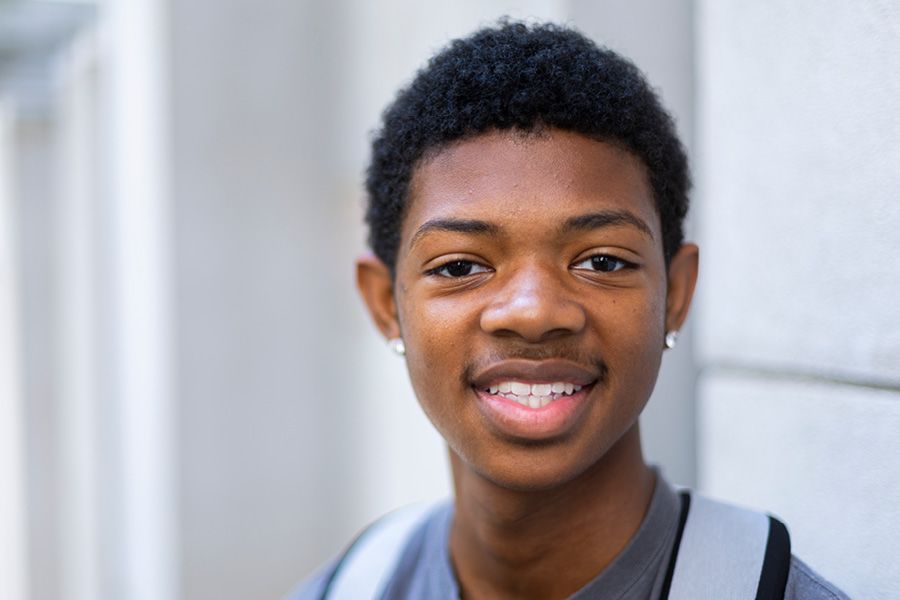
KALIL BENNETT
Emory College
Woodruff Debate Scholar
Baltimore, Maryland
Prospective Majors: African American Studies and Political Science
Dream Job: “I want to be a trial lawyer, and someday a U.S. Supreme Court justice.”
Biggest Challenge the World Faces Today: “Being unable or resistant to consider opposing views is a huge issue today. Political polarization, made worse through social media and other echo chambers, has made so many of us harden our stances and blind to what other people — sometimes even our own family members — are experiencing and where they are coming from.”
What He’s Most Optimistic About: “Activism and awareness is at an all-time high, and I think my generation and others are committed to fighting for what we believe is right.”
There’s no debating that Kalil Bennett excels at making a good argument. In high school, he was rated one of the top 15 debaters nationally and received an Academic All-American award in policy debate for his prowess. “Being on the debate team really opened up a whole new world to me,” Bennett says. “I love traveling, and I love being able to test my intellect and develop my research skills to build winning arguments against other top debaters from around the country.”
A Woodruff Debate Scholar, Bennett is excited about taking his skills to the next level for the Emory Debate team, which ranks as one of the best collegiate teams in the country. He’s also hoping that his drive to get better at building arguments helps him as he prepares to go into a career in law.
“I’m ready to spend the next four years focusing on my personal passions and studying political science and African American studies here at Emory,” he says. “I’m ready to be in a new place like Atlanta and learn from my professors and fellow classmates.”
Bennett is interested in all matters of equity and justice, and an early highlight of his days on campus was touring a local food sustainability farm as part of the Woodruff Scholars program. “I’ve seen food deserts in Baltimore, and it was eye-opening to see how we can build more sustainable farming practices to ensure everyone has access to healthy food,” he says.
President of his high school’s Black student union, leader of the student diversity council and a champion for mental health awareness, Bennett is eager to get involved in Emory’s student organizations. “I hope to become active in the Black Student Alliance and other groups who are serving students of color and other underrepresented minorities on campus,” he says.
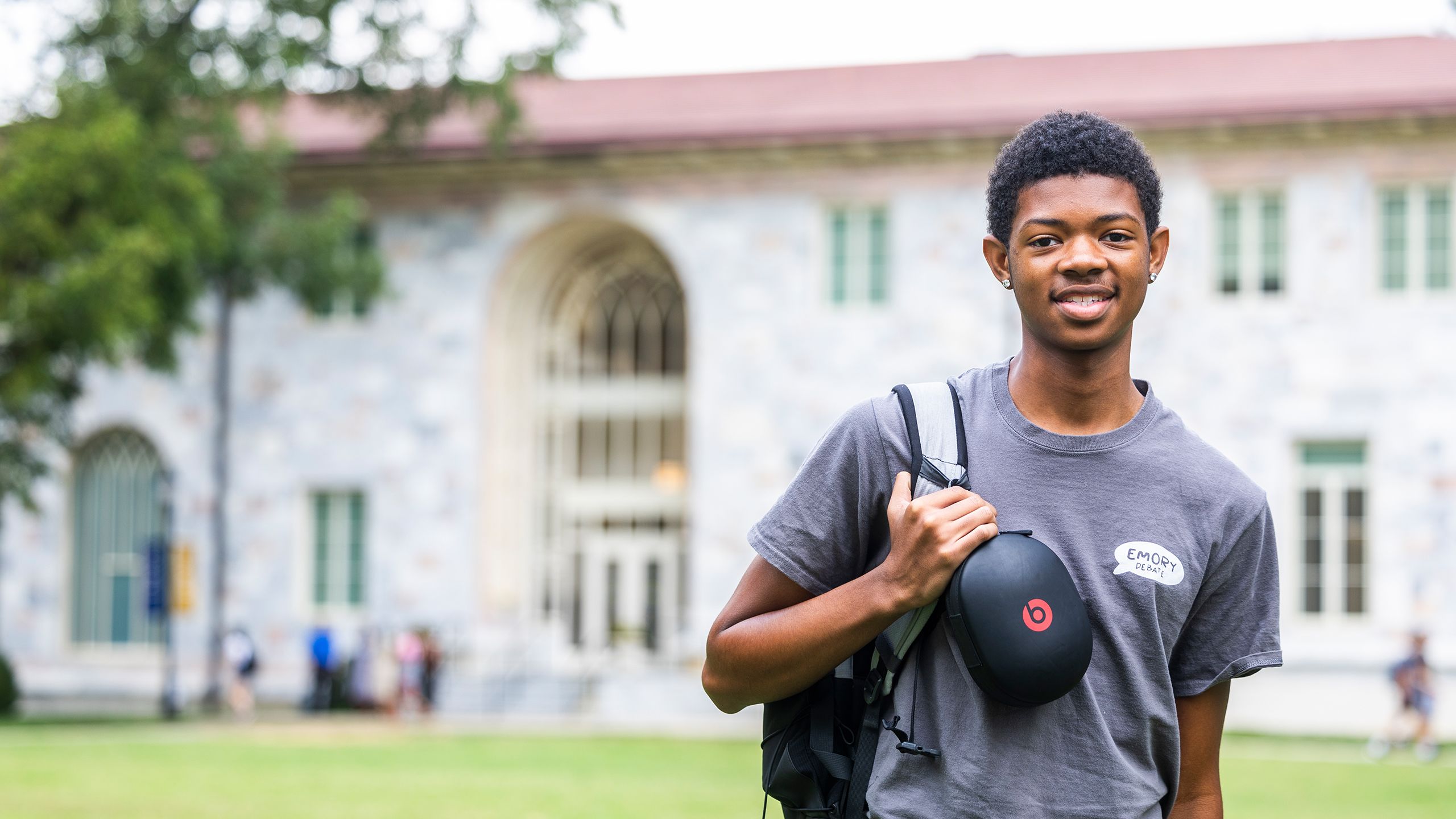
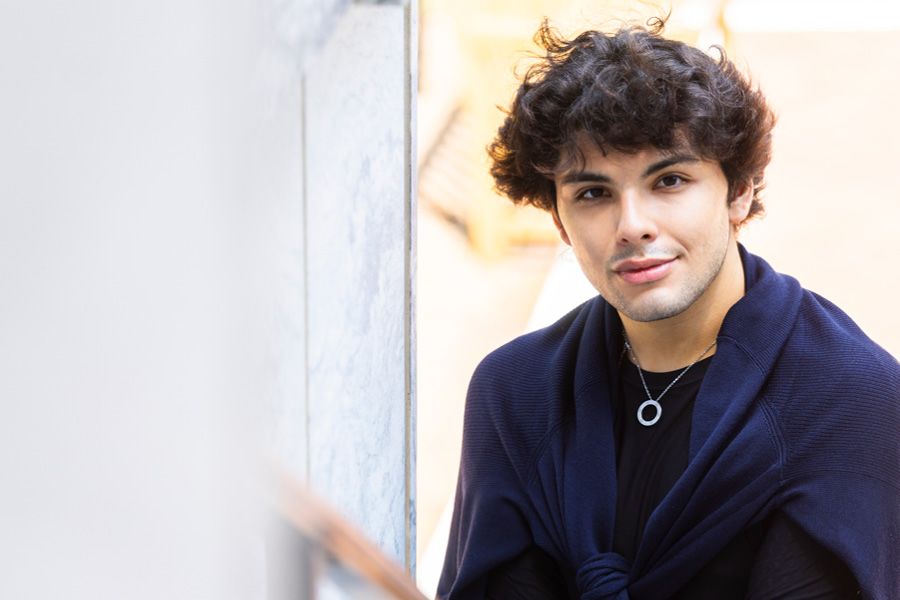
RAFI ESCOTO
Emory College
Palm Beach Gardens, Florida
Prospective Majors: Biochemistry and Molecular Biology
Dream Job: “I want to be a doctor and help people. Specifically, I want to be a pediatric cardiothoracic surgeon.”
Biggest Challenge the World Faces Today: “The biggest challenge is hatred, especially in America. We have allowed the concept of right and left to completely rip apart nuclear families, to rip apart friendships, to rip apart school districts and college campuses. The only way we’re going to be able to change this is through discussion, close listening and collaboration.”
What He’s Most Optimistic About: “I think we’ll figure things out. Every day we are waking up and seeing new possibilities and how innovations — like artificial intelligence and clean energy sources — can help us make radical changes and make the future better.”
Despite his relatively young age, Rafi Escoto has already accomplished things many of us can only dream about. He’s attended a medical conference at Oxford University in England, published research about the impact of anthropogenic pollution on albatross birds of the Galapagos and scub-dived to study Orca whales.
However, he still admits he’s a little nervous about starting college. “I’ve never attended a big school like Emory,” Escoto says. “One of the main reasons I chose Emory was because of the low faculty-to-student ratio. That type of educational intimacy is very important to me.”
The moment he stepped foot on Emory’s campus, he knew it was the right place for him. “It is the citadel of higher learning I’ve been looking for — it just exudes innovation and academic rigor,” Escoto says.
He also believes it’s a place where he can be himself. “As somebody who came out as gay in a Catholic high school in Florida, I know just how important it is to be comfortable in being who you are and being able to follow your beliefs and interests,” Escoto says. “You can’t let others stop you or bring you down because of your personal identity, because ultimately it doesn’t matter what your gender or race or sexual orientation is; it just matters what you’re capable of doing.”
“High school turned out to be a great experience for me because I had tons of support,” he says. “I had a tight group of friends and learned a lot of interesting things in my classes.” Escoto served as class president and even co-founded a “mini AP Board” to help his classmates succeed with their AP exams.
At Emory, he hopes to find a similar path toward leadership and service. “The whole change of scenery is going to take some getting used to — but I’m excited to meet new people, make friends and jump right into learning,” Escoto says.
He plans on studying biochemistry and molecular biology, though he’s keeping his options open. “I also love economics, finance and history,” he says. “But as of right now, I’m thinking pre-med all the way, with my goals being to go on to medical school and then earn my PhD.”
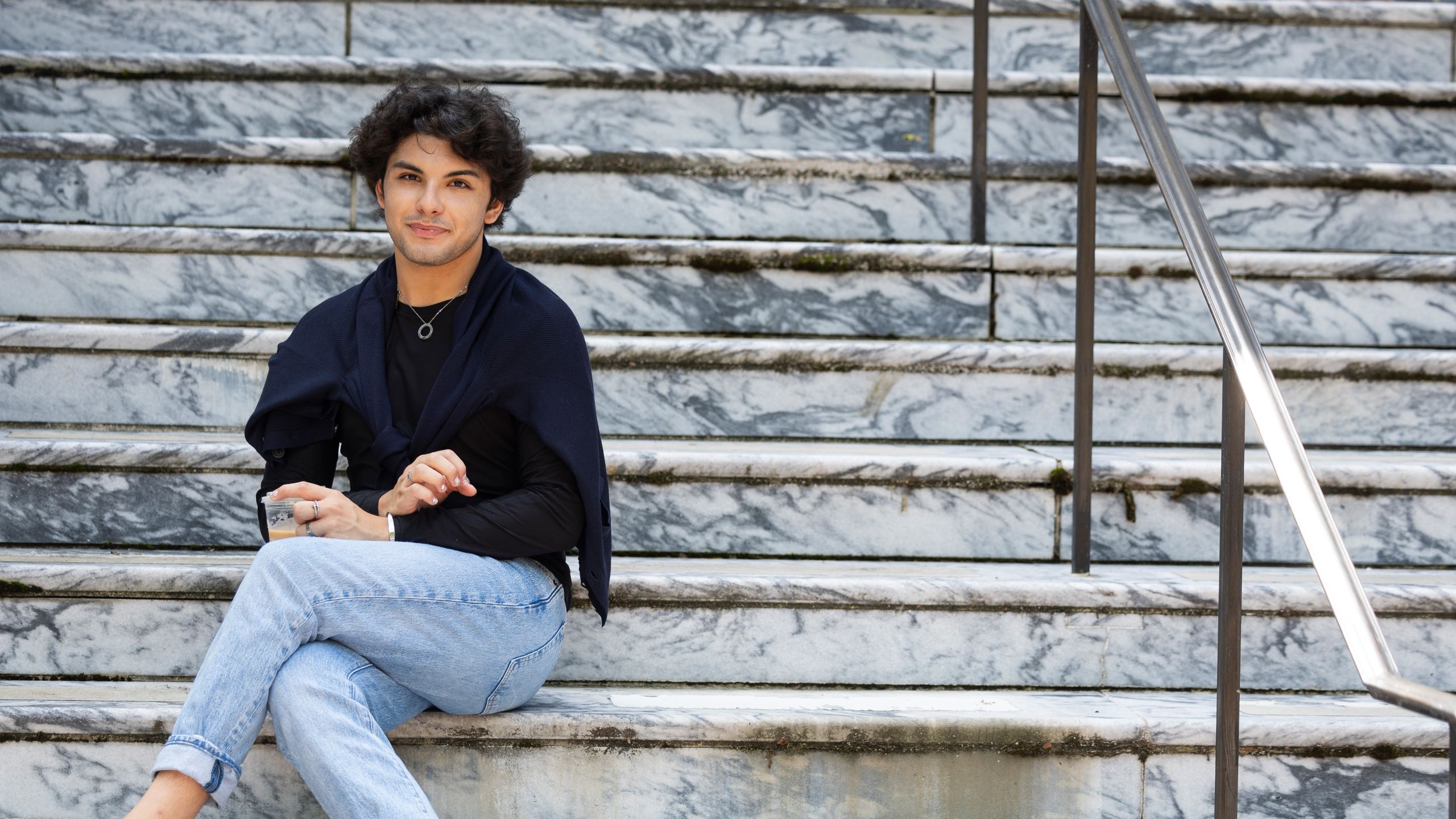
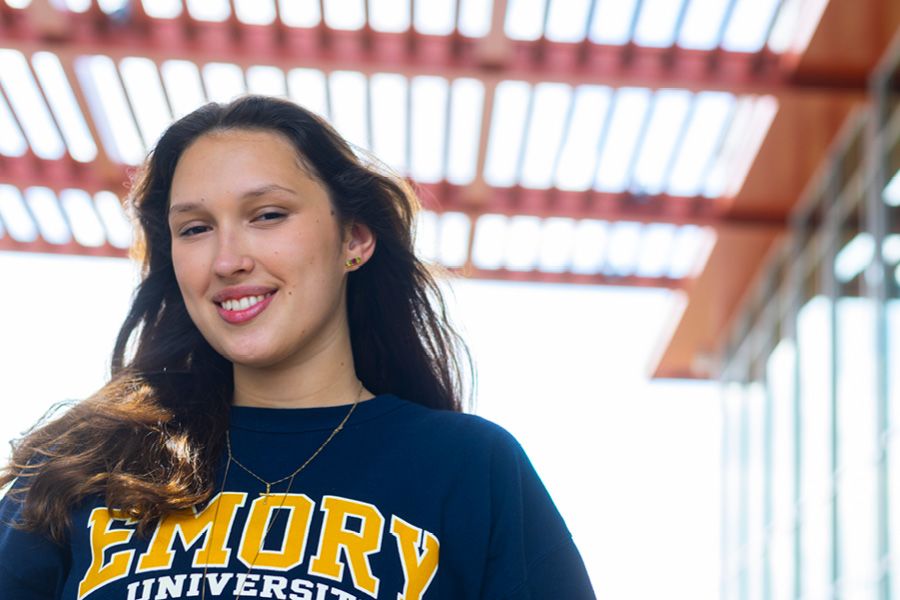
SOFIA BARBOSA SLIVINSKIS
Emory College
São Paulo, Brazil
Prospective Majors: Psychology and Political Science
Dream Job: “I want to be a diplomat for Brazil and live abroad.”
Biggest Challenges Facing the World Today: “We as humans try too hard to be perfect in a world where humans can’t be perfect.”
What She’s Most Optimistic About: “Because of the internet, because of social media, because of all that we have lived through so far, my generation is more aware of people around the world, and their needs, than any other generation that’s come before us. We’re more empathetic. We want to be there and help others in a way that I don’t think my parents or grandparents ever saw the world.”
Sofia Barbosa Slivinskis is the second member of her family to leave Brazil and go to college in the U.S. “I’m interested in a lot of different things, and I think that’s precisely why I chose Emory. I want that opportunity to explore,” Slivinskis says. “I’m starting off with a double major in political science and economics, but I’m open-minded to anything new that might pique my passions. I could see myself studying film and media studies, too — it’s something I didn’t have the chance to explore at high school in Brazil.”
Being near Atlanta was also a big part of her decision. “Coming from São Paulo, I couldn’t see myself moving to a small town or rural area, and Emory gives me the best of both worlds with its beautiful campus and a large city right next door,” she says. “In addition, I did have the chance to visit the university and I was struck by how diverse and inclusive the student body was, as well as how Emory encourages the embracing of that diversity with a wide range of clubs and activities.”
As the fall semester started, Slivinskis was excited to dive into her classes. “I’m looking forward to learning, especially in how to develop further as a leader,” she says. “I was the equivalent of my school’s class president and also the captain of the volleyball team, and having those responsibilities really helped me grow as a person.”

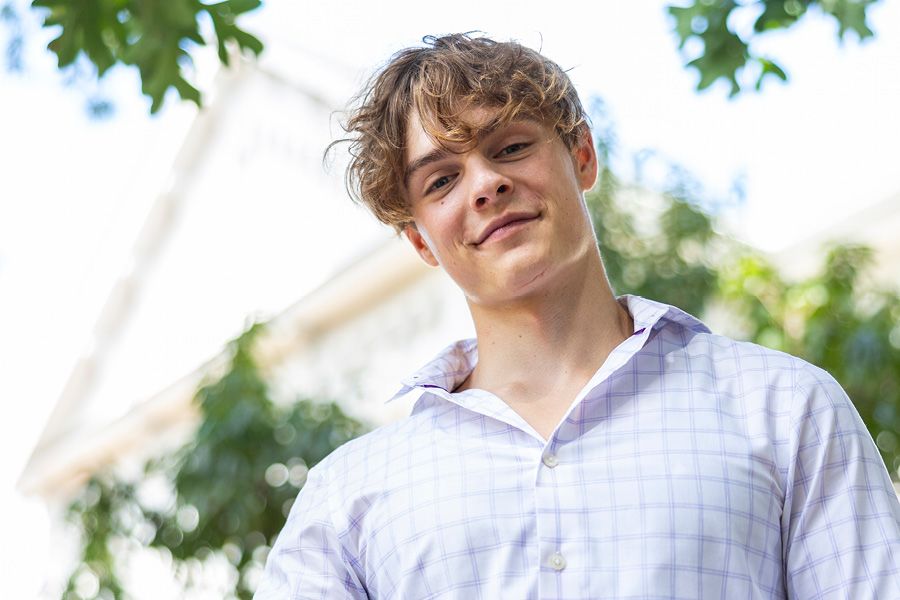
JAMES GOTTLIEB
Oxford College
Corvallis, Oregon
Prospective Major: Political Science
Dream Job: “My goal is to elected as a U.S. senator so I can create laws that makes our country better for everyone.”
Biggest Challenge the World Faces Today: “It’s access to affordable, equitable health care, especially in the U.S. The health care system here is purposely complicated, purposely confusing, so big pharmaceutical and insurance companies can wring out as much money from Americans as possible. I speak from personal experience. I have Ehlers-Danlos syndrome, which affects my skin and joints. I have received more than 200 stitches on my body because my skin is stretchy and cuts and tears easily. But not everyone has been lucky enough to have good insurance and access to health care like I’ve had. We need to fix that — we need universal health care in this country.”
What He’s Most Optimistic About: “I think new technologies will help solve many of our problems, if we’re willing to fully embrace them. In fact, they may be our only ways out of some of the issues we as humans have created. I'm very excited about artificial intelligence. I think it’s a beautiful thing that can enhance our capabilities and our creativity. Meanwhile, the growing accessibility of electric vehicles and solar power are showing us that we can step away from fossil fuels. These are all tools that we need to lean into.”
First-year Oxford student James Gottlieb boasts the gift of gab and oozes charisma beyond his years. Even though he’s been on campus for just a short while, he’s met dozens and dozens of people and hopes to get to know them better. His outgoing, confident nature is a perfect fit for his chosen field of politics. He’s already served as a U.S. Senate page, an intern for U.S. Sen. Ron Wyden (D-Oregon) and the first high school intern for Oregon Speaker of the House Dan Rayfield.
Given these experiences, it’s no surprise that Gottlieb craves a life of public service. He even hopes to one day become a U.S. senator himself. “I want to help lead the fight against global warming and for better gun control laws,” he says. “I want ranked-choice voting, bodily autonomy for women and better programs for underserved populations. I want human health to be treated as a necessity and not a commodity.”
He’s personally watched arguments for and against these causes on Capitol Hill, and the lack of progress and bipartisan cooperation disgusts him. But before he leaps into the fray, Gottlieb is well aware that he still has a lot to learn.
“That’s why I’m here at Emory, at Oxford,” he says. “I’m at a place I’m sure will nurture my intellect and expose me to ideas I’ve never considered before. It’s a whole world of opportunity for me, including chances to make new friends, discover different cultures and worldviews and become part of a close-knit community of scholars.”
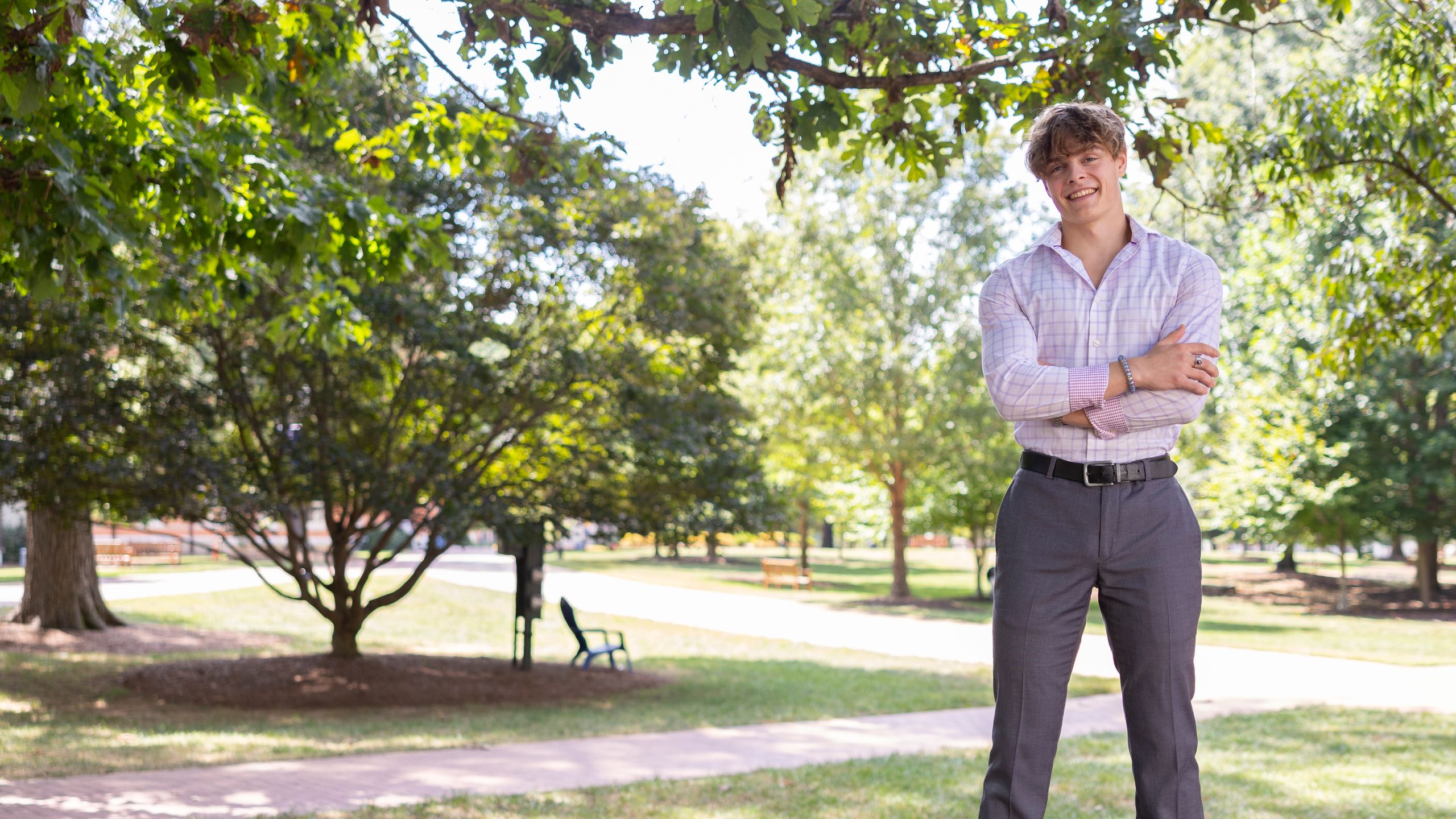
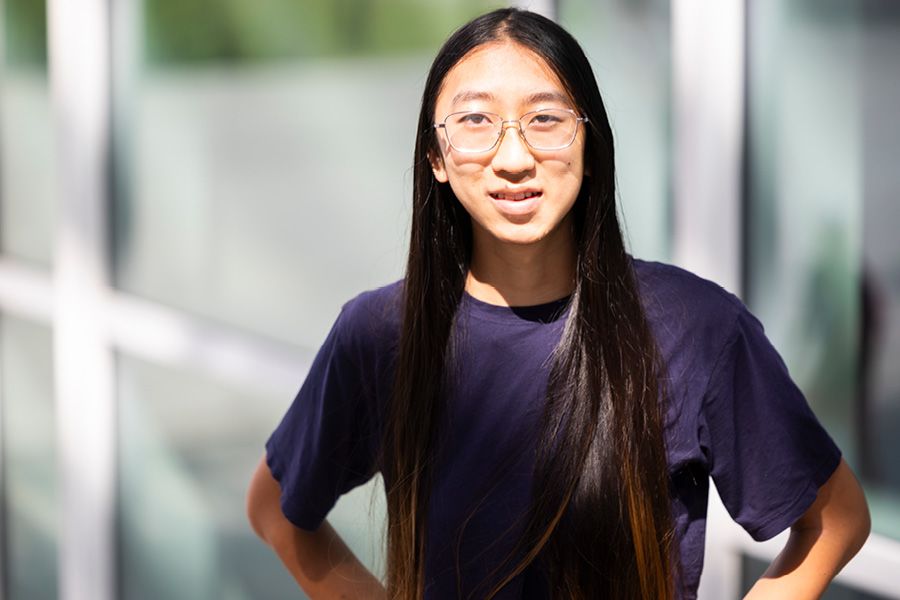
CORALYNN YANG
Emory College
Woodruff Scholar
Los Angeles, California
Prospective Major: Quantitative Science
Dream Job: “I don’t have a specific dream job yet, but I think I would like to be a teacher in some capacity.”
Biggest Challenge the World Faces Today: “Too many people think that epistemic uncertainty and disagreement are bad. Debate has taught me exactly the opposite. Openness forces us to reassess our thinking and the way we live, while at the same time forces us to face our worst fear: the fear of being wrong. Disagreement steers us away from groupthink and encourages us to listen, learn other points of view and drives us toward thinking about issues more critically, seeing them in a more complex light than simplistic black or white.”
What She’s Most Optimistic About: “While extreme political polarization has become a major and noticeable problem, it has brought many otherwise uninterested or apathetic people to pay more attention to the importance of civic participation. I’m optimistic that my peers and I are forming opinions on the omnipresent political issues that are otherwise absent from public discourse.”
Analytical rigor is important to Coralynn Yang, who this past spring was named the top speaker in policy debate at the Tournament of Champions, the national championship of high school speech and debate — the third woman ever to receive the honor. Yang has been involved in student-driven, research-based activities since high school, with a focus on using data and statistics to analyze sociopolitical issues. At Emory, she plans to major in quantitative science and hopes to use her studies to help make the world a better place.
“The multiplicity of tracks that utilize quantitative theory and methods as a language of analysis and abstraction from the biological to sociopolitical realms uniquely interest me,” Yang says. “I don’t think I know enough about these fields yet to pick one as a specialty, but all the possibilities are intriguing.”
She’s also interested in learning more about the transformative potential of artificial intelligence and other complex computing systems. Specifically, she’s currently learning in her first-year seminar about large language models (like ChatGPT) and artificial neural networks as they relate to data-driven linguistic analysis in research contexts.
As she embarks upon her college experience, she’s eager to make new friends and learn new things from professors. “I can already tell Emory is way more collaborative in nature than high school,” Yang says. “And not just between people but also between disciplines.”
She also will be looking to sharpen her incredible skills in debate at Emory’s Barkley Forum. “I’m hoping to follow in the footsteps of Eu Giampetruzzi 23C, the first woman to receive top speaker at the collegiate National Debate Tournament in consecutive years,” Yang says.
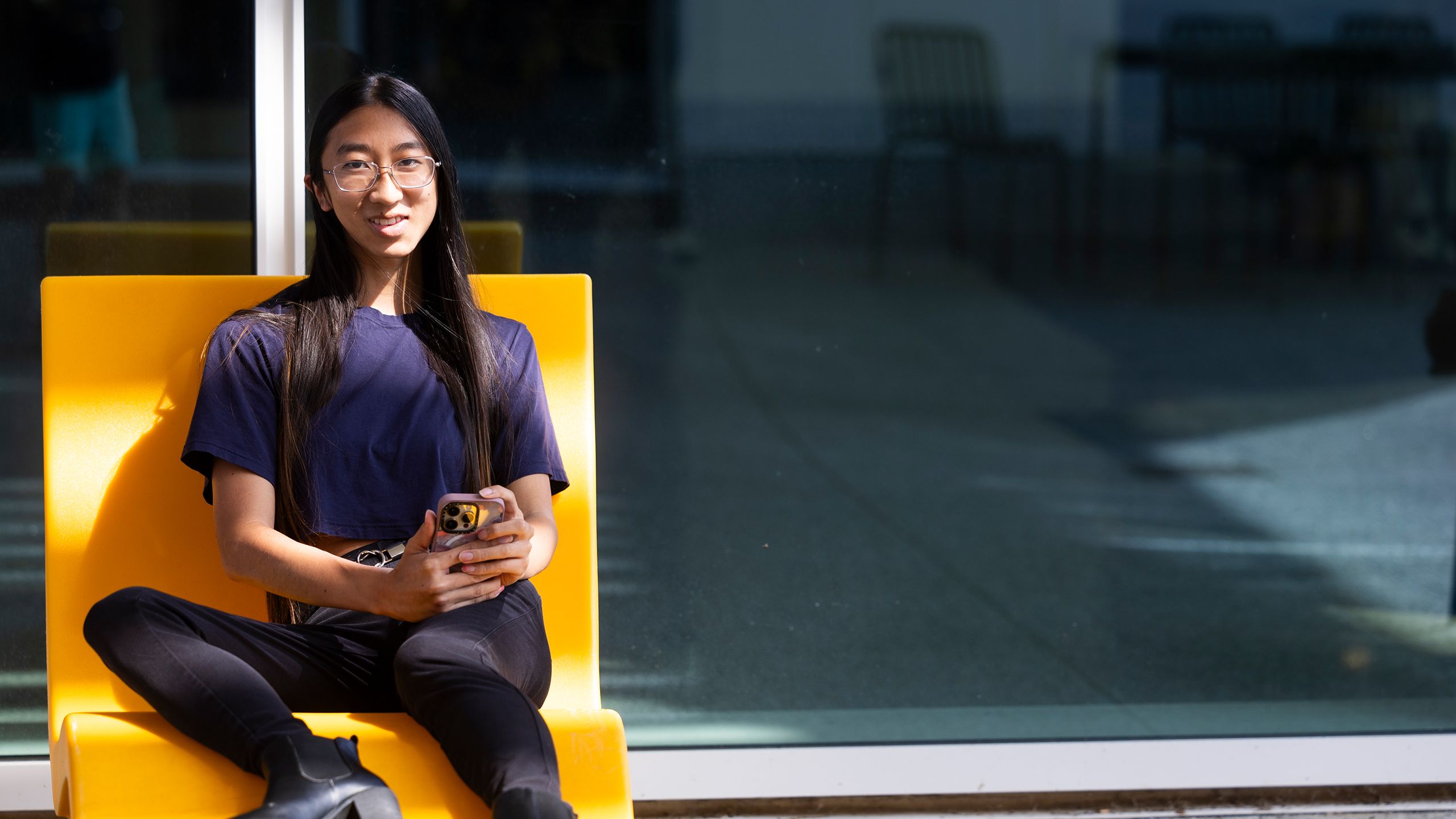
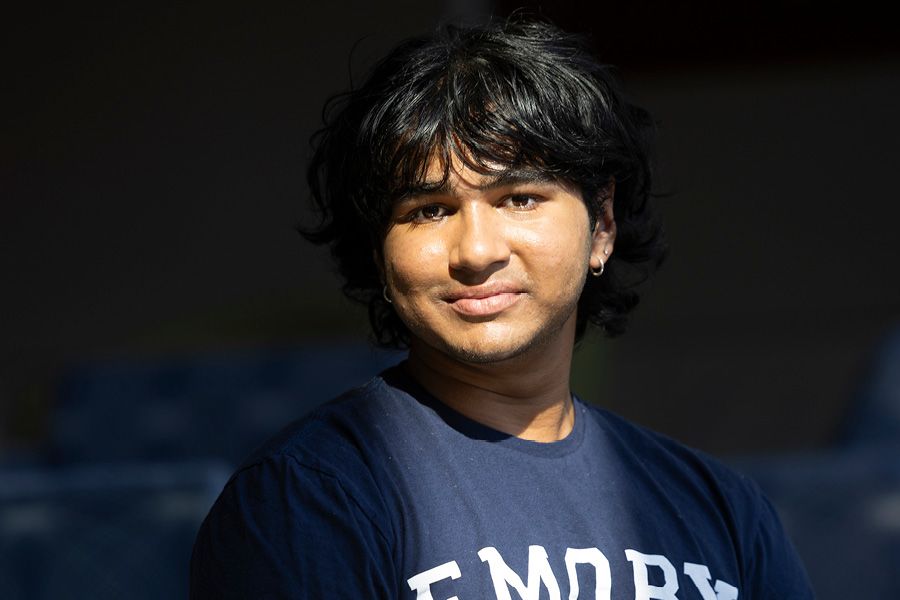
NEERAJ PALNITKAR
Emory College
Woodruff Music Scholar
Johns Creek, Georgia
Prospective Majors: Anthropology and Human Biology
Dream Job: “I want to be a public health researcher and an activist. I want to fight for health care access in marginalized communities and advocate for Indigenous rights, among other causes.”
Biggest Challenge the World Faces Today: “Hustle culture is slowly killing us, and in ways that aren’t immediately obvious. And this idea that so many of us have been programmed to be always on the hunt for the best opportunities — and the most money — is not only detrimental to individuals, but society as a whole. For example, when we turn to tackle big societal problems like the climate crisis, we’re not able to go all in because too many people are worried about the financial cost and their bottom line rather than the long-term greater good. Too few are willing to make sacrifices to live sustainably and improve our odds of avoiding planetary catastrophe. If we want this world to be a better place, we need to learn to look beyond ourselves and our personal desires for fame and fortune.”
What He’s Most Optimistic About: “There’s a new wave of activism that’s really inspiring. It shows me that we haven’t given up hope and that we’re willing to fight for fundamental human rights and other important causes, no matter the odds. I’m very optimistic that one day we will see the change that we want to happen, and I think my generation will be a huge part of it.”
For many years, Neeraj Palnitkar has used his voice to create beautiful music — he was a member of Georgia’s All-State Chorus all through high school — but he’d like to learn to use it for a much different purpose. “Music is a huge part of who I am, and I will continue to indulge that love by performing in concert choir and a cappella at Emory,” Palnitkar says. “But I don’t see it as a career, at least not right now.”
Instead, he hopes to study anthropology, biology and public health so he can raise his voice and speak out for the needs of marginalized communities. “I'm very interested in learning about health disparities among people of color and inner cities,” he says. “My own family in India has a distrust of Western medicine, and I want to break down misconceptions and barriers so health care can be more accessible, equitable and understandable for all. People shouldn’t mistrust all the advances in medicine just because they’ve not had access to it or have been denied it.”
Emory’s support of students who want to study such seemingly disparate areas as music and anthropology and public heath appealed to Palnitkar when we he was applying to universities. “It gives you an opportunity to discover and synthesize all of your interests and passions to make you a more enlightened person all around,” he says.
Palnitkar is also eager to explore the nonacademic facets of the Emory college experience. “I’m eager to get more involved in identity-based communities — it’s something that my school really lacked, especially in terms of support for LGBTQ people,” he says. “And Emory not only has a thriving, vibrant queer community, but it also has opportunities for me to connect to my South Asian roots. There was no shortage of South Asian people in my hometown, but I think there was still a lack of cultural pride, something that comes with the territory growing up a person of color in America. I’m really excited to attend Indian Cultural Association events and have new opportunities to celebrate my heritage.”
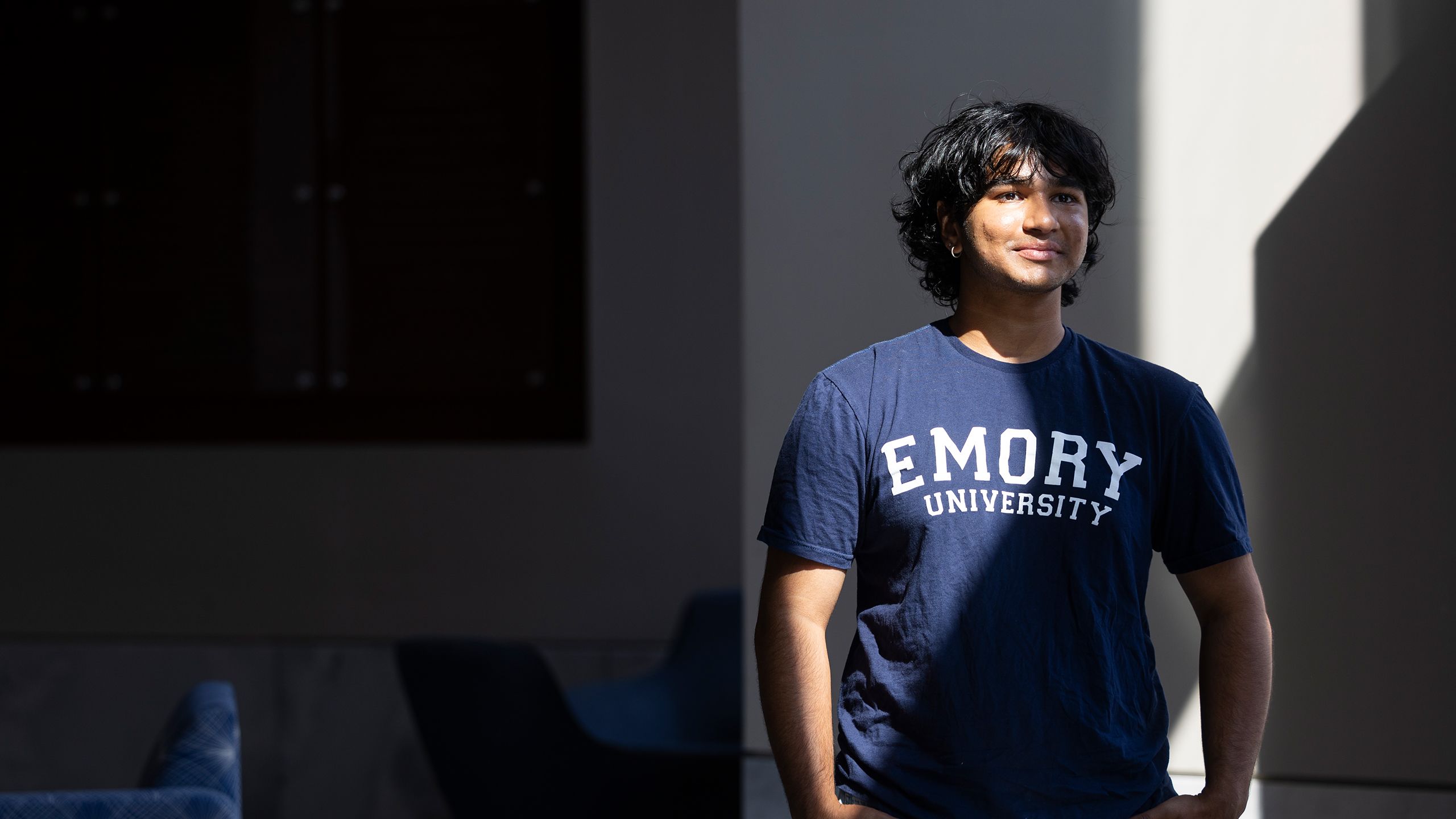
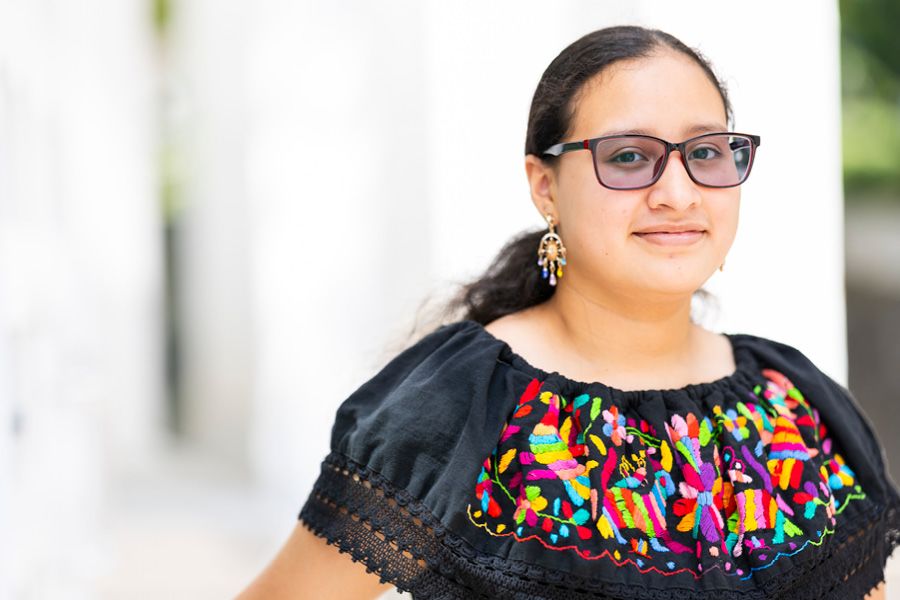
NATHALY BAUTISTA
Emory College
Forest Park, Georgia
Prospective Major: Environmental Science
Dream Job: “I love research and hope to one day become a meteorologist and climate-change researcher.”
Biggest Challenge the World Faces Today: “My first instinct was to say the growing political divide between conservatives and liberals not just in the U.S. but also around the globe. But more immediately, just coming out of high school and entering college, I’m concerned about gun violence and school safety. It hurts that because of the political divide, very little progress has been made to enact stronger gun laws even though mass shootings are increasing.”
What She’s Most Optimistic About: “Younger generations are more open to diversity and more likely to call out things like social injustice and racial prejudice. I think we will drive big changes and make the world a better place.”
Nathaly Bautista was born in Honduras — her mom is Honduran, and her father is Mexican — and grew up in suburban Atlanta. Her Hispanic heritage is important to her, and she grew enamored with Emory after seeing the diversity of the student population during several campus visits. “Emory felt like a place I could belong and not just be part of a small minority,” Bautista says. “All the student organizations that focused on heritage and identity really appealed to me.”
A self-declared science fanatic, Bautista was also won over by the university’s expertise in environmental science. “I long knew I wanted to pursue a career in a STEM field, but it wasn’t until my junior year in high school that I discovered my love for environmental science and research,” she says. “I’m eager to learn more about meteorology and climate change and do something to counter the negative effects we’re seeing from it right now.”
Though one of the benefits of going to Emory is that it’s close to home — “I’m very attached to my parents,” Bautista says — she’s eager to spend her first year on her own. “I’m thrilled to start college life, become more independent, learn new things and make new friends,” she says. “I can’t wait to get involved in research projects on climate change and anything else that appeals to me. And I want to explore different cultural organizations and share my experiences with others.”
She’s also excited about living on such a beautiful campus. “I love to walk, and it’s such a pleasure to just stroll around campus and explore it every day.”
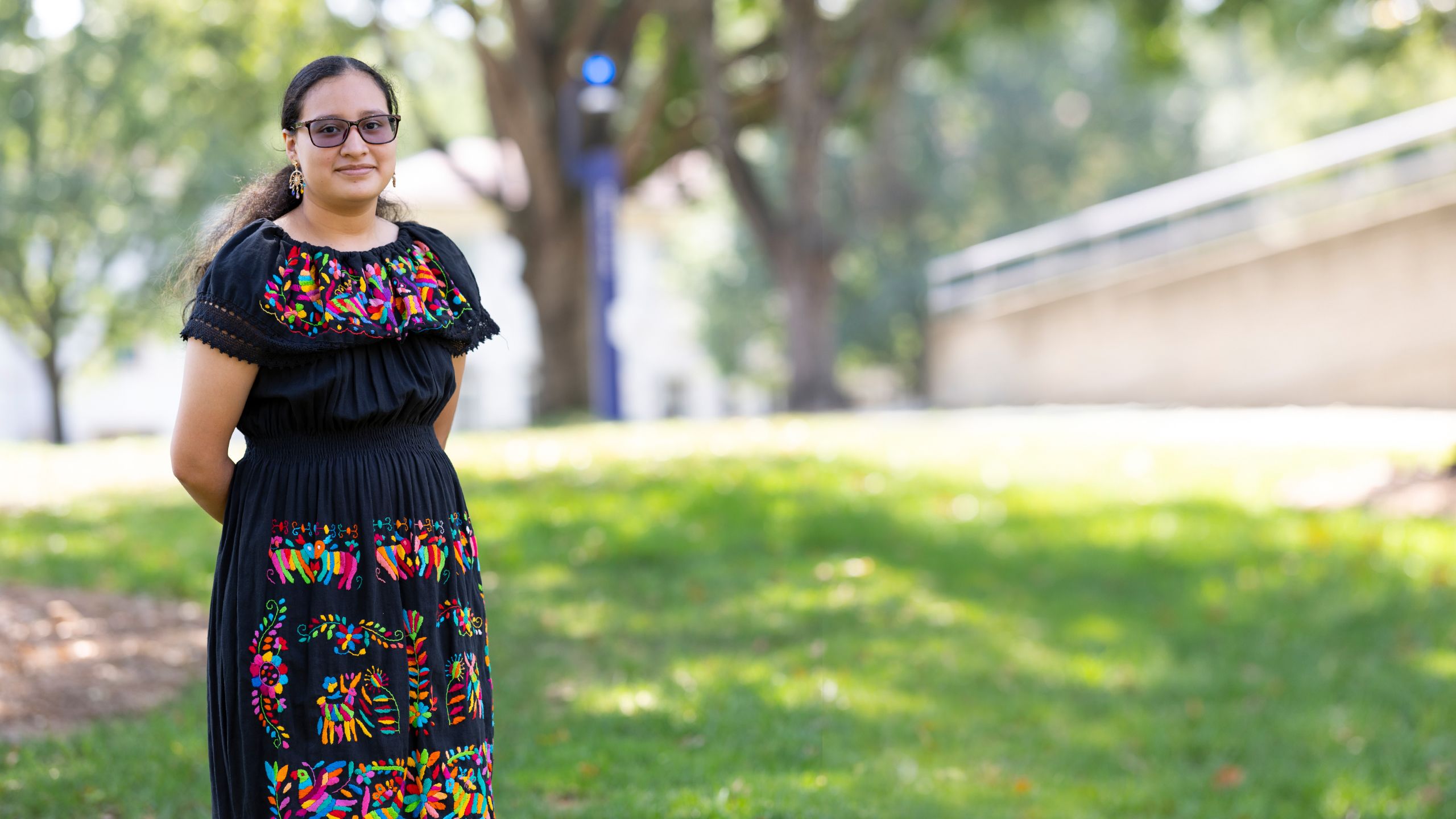
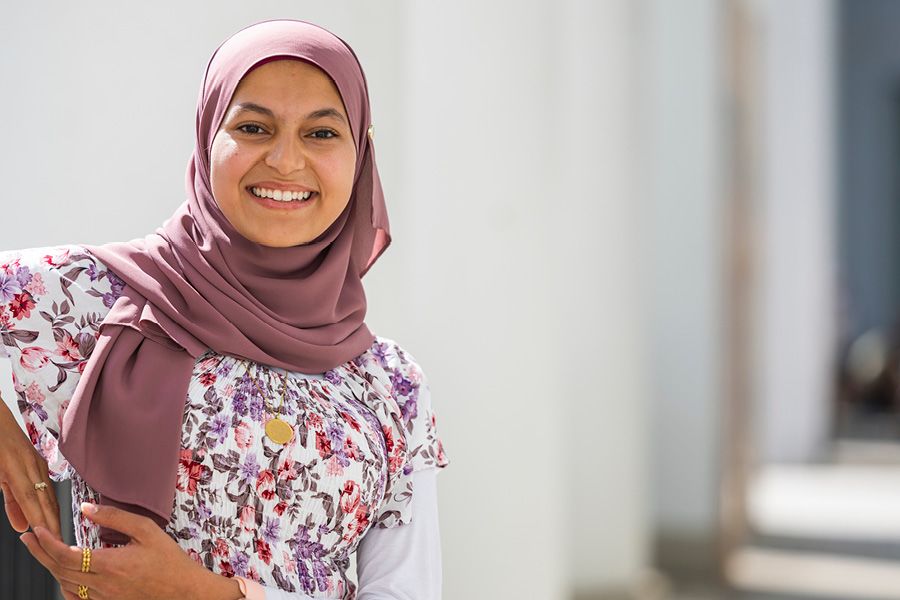
SALAAM AWAD
Emory College, George W. Jenkins Scholar
Riverdale, Georgia
Prospective Major: International Relations
Dream Job: “I do not have my eyes fixed on a certain title or role quite yet, but whatever it is will involve engaging with people from a wide variety of cultures and backgrounds. Ultimately, I want to be a leader advancing international human rights.”
Biggest Challenge the World Faces Today: “I don’t think society is reflective enough. A lot of problems stem from people not checking their unconscious biases and feeling empathy toward others before they interact with them. Being so closed-minded only promotes prejudices and racism. Learning to be more reflective is hard, especially in our fast-paced world, but it would stimulate more respect, more positivity and more understanding.”
What She’s Most Optimistic About: “That humans, at their core, are good and that simple acts of kindness — especially of the random type — can bring people together, spark deeper conversations and remind them that we humans are all in this together.”
Community service is vitally important to Salaam Awad, an Emory George W. Jenkins Scholar who spent much of her high school years leading volunteer efforts to help others in need. She participated in Georgia’s 21st Century Leaders program for the past three years, the last as vice president, and helped create food and clothing drives. “That was a truly rewarding experience,” she says.
Emory’s commitment to service is one of the reasons she chose to attend the university, along with the diversity of the student population, including many who’ve come from other countries. “My goal is to work in the field of international human rights, and I can’t wait to learn from my classmates of different backgrounds and cultures,” Awad says. “It’s essential to listen to others’ views and experiences and share your own so we can all break out of the bubbles we’ve been trapped in.”
She’s deeply concerned with human rights violations across the globe, such as the repression of Uyghur Muslims in China. “I want to be a voice to speak up for marginalized peoples who aren’t being heard,” Awad says.
Outside her core studies at Emory, Awad anticipates taking advantage of her fledgling college experience by trying out new pursuits. She did speech and debate in high school, but she wants to see if she can leverage similar skills and talents in theater. “I’ve never done theater before, but I’m taking a class in it my first semester and we’ll see how it goes,” she says.
Expect it to go well — Awad has a definitive creative streak. She has been honing her abilities as a henna artist over the years and recently even began a small business doing henna designs for friends and family.
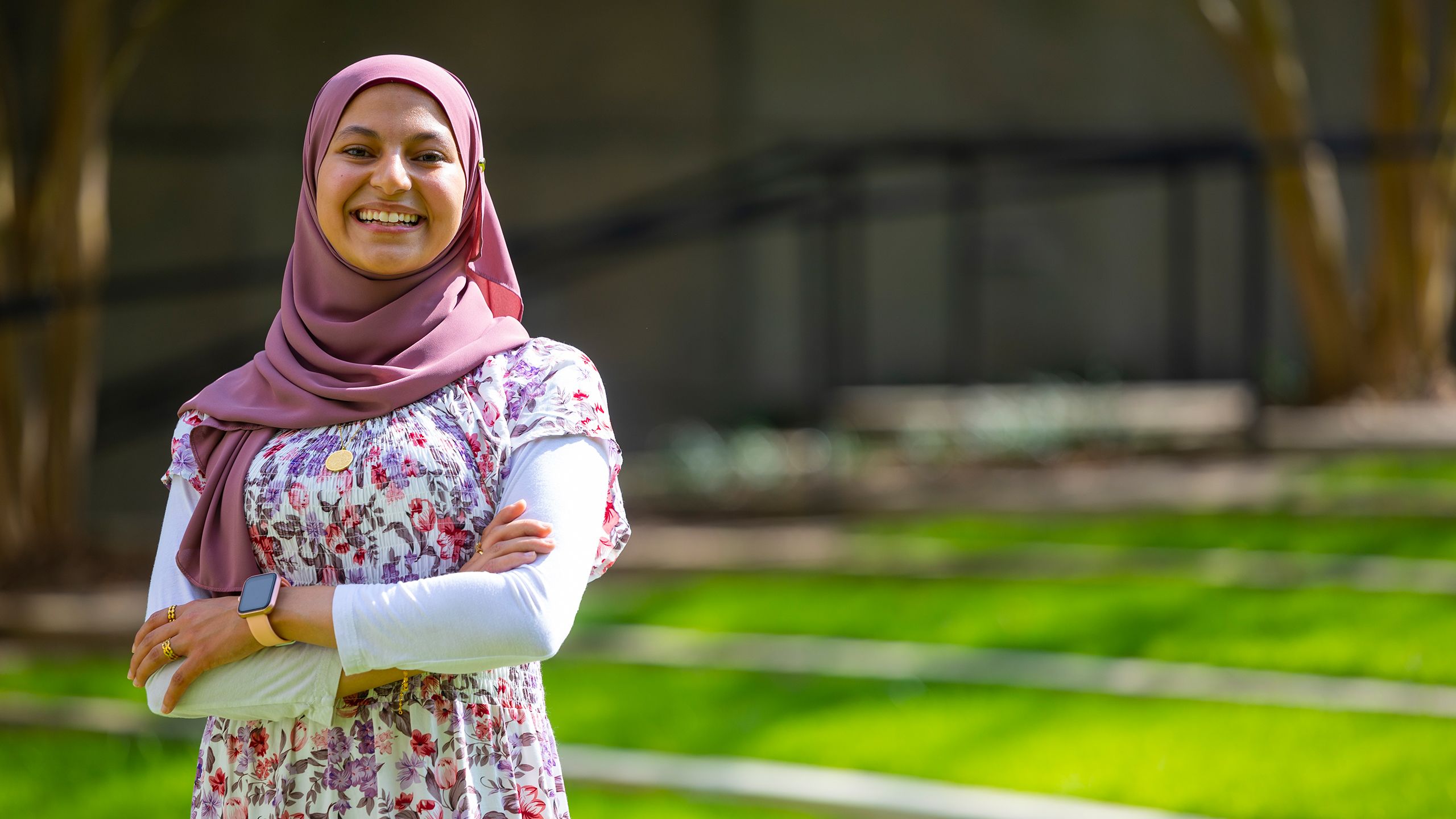

Want to know more?
Please visit Emory Magazine, Emory News Center, and Emory University.

